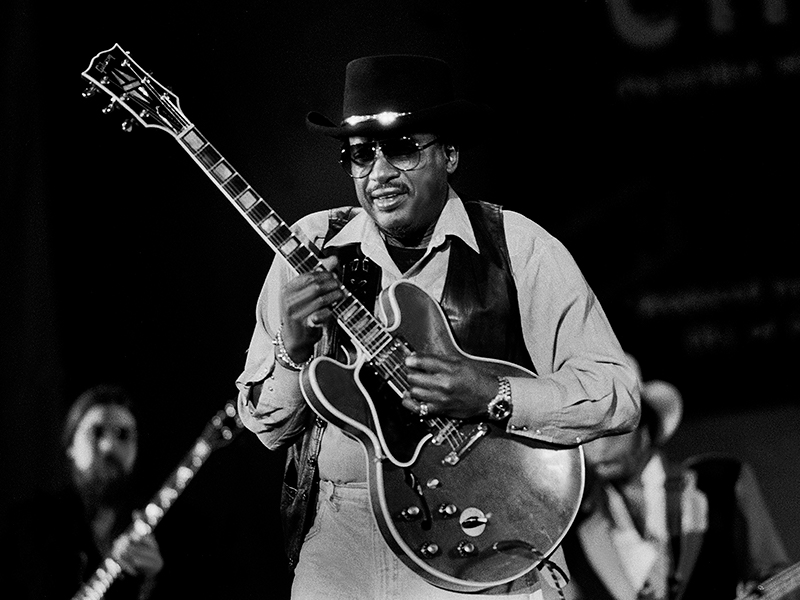Otis Rush, Chicago blues legend, dead at 84
Described as the key architect of “West Side Sound,” Rush died of complications from a stroke.

Photo by Paul Natkin/Getty Images
Otis Rush, a legendary blues guitarist and vocal powerhouse, died Saturday from complications related to a stroke he had suffered in 2003. He was 84.
His wife, Masaki Rush, made the announcement on his official website. It read: “Known as a key architect of the Chicago ‘West Side Sound,’ Rush exemplified the modernized minor key urban blues style with his slashing, amplified jazz-influenced guitar playing, high-strained passionate vocals and backing by a full horn section. Rush’s first recording in 1956 on Cobra Records, ‘I Can’t Quit You Baby,’ reached number six on the Billboard R&B Charts and catapulted him to international acclaim. He went on to record a catalog of music that contains many songs that are now considered blues classics.”
Rush was born in Philadelphia, Mississippi in 1935, and had begun teaching himself to play the guitar when he was just ten, according to the Washington Post. The natural southpaw played a right-handed model upside down, with the low E string on the bottom. He moved to Chicago in the late ’40s, where he began turning heads in the south- and west-side clubs he played in. Later on in his career, he would partner up with Cobra Records in the ’50s and ’60s, and become a driving force in the blues scene, helping shape what would become known as the “West Side Sound.”
The label was also home to other greats such as Buddy Guy and Magic Sam. But unlike them, Rush was not a consummate showman, so he never attained such levels of fame. While he may not have been the most idolized bluesman of his time, his powerful tenor voice and sleek axe work influenced many that came after him, including the likes of Jimmy Page, Eric Clapton and Stevie Ray Vaughan—who’d named his band after Rush’s 1958 song, “Double Trouble.” This particular track provided social commentary on the economic uncertainties faced by African-Americans in Chicago at the time.
In the ’60s and ’70s, following Cobra Records’ bankruptcy, Rush recorded with a host of other companies, but was constantly blighted by label issues—lengthy delays being one of them. For one, his 1976 LP Right Place, Wrong Time, was only released five years after it was recorded.
The last full-length the guitar hero recorded was Any Place I’m Going, released in 1998. It won him the Grammy for Best Traditional Blues Album. Rush continued playing and touring through the ’90s up until 2003, when he suffered a serious stroke, and had to stop performing.
Stream Right Place, Wrong Time here:
